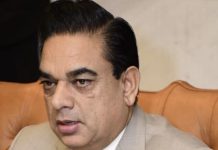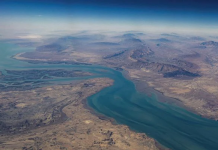ISLAMABAD, Jun 24 (APP):The parliamentarians on Monday underlined on taking measures for the fair distribution of resources, to bring foreign direct investment and also provide education of the youth for sustainable economic growth in the budget 2024.They also stressed the need for reviewing the 7th National Finance Commission (NFC) Award and fair distribution of resources among the provinces, which will not only make the federation stronger, but also the country’s economy achieves the sustainable development goals.
The lawmakers also emphasized for providing more resources for the agriculture sector, which is the backbone of the country’s economy and also stressed for increasing the role of youth in the country’s economy.
Participating in the budget debate, Mir Ghulam Ali Talpur, MNA of PPP said that the government has presented the budget 2024-25 in a time of huge economic challenges and now the government needs to take necessary steps for sustainable economic development.
The PPP leader said that agriculture is the pivotal sector of the country’s economy, for which more allocation is needed in the budget 2024-25.
He said that in budget 2024-25 tax has been proposed on agricultural inputs, which is the biggest sector in the country’s GDP growth and is the guarantor of the country’s economic development.
Talpur said that the National Finance Commission (NFC) award needs to be revived so that the resources can be distributed fairly among the provinces and the federation can be strengthened.
He said that the country’s economy and the federation will be strengthened by fair distribution of resources.
Ch Bilal Ejaz , MNA of Sunni Ittehad Council said that more resources need to be allocated for education, health and agriculture in the budget 2024-25.
He said that Pakistan has a large youth population and there is a need for more allocation in the budget for the youth.
He said that there will be sustainable economic development in the country by equal distribution of resources and making the youth educated and skilled.
He said that only with freedom of expression in the country, the democratic culture will be promoted and the country’s economy will also be strengthened.
Ms. Shahida Rehmani , MNA of PPP said on the occasion that there is a need for tax reforms and also to tax net increase in the country, which will make the country’s economy sustainable.
The PPPP leader said that the untapped resources of the country should be explored and used for the economic development of the country.
She said that the budget deficit is a big issue in the country at present, which needs revenue collection to reduce it in the coming budget.
Shahida stressed for allocating more money in the budget 2024-25 to make the youth educated and skilled for providing them employment opportunities.
Iqbal Khan Mahsud, MNA of MQM emphasized for bringing foreign direct investment in the country at this time of economic challenges and the vision of SIFC is significant in this regard.
The MQM leader said that currently the trade councilors posted in foreign embassies of Pakistan need to be mobilized for increasing foreign investment and export in the country for economic growth.
He said that agriculture is the major sector of the country’s economy, but there is a need to document the agricultural sector.
He said that by documenting the agriculture sector, revenue will increase in the country’s economy and the size of the economy will also increase.
He said that in budget 2024-25 tax was imposed on the salaried class; at this time there is a need to provide relief to the salaried class.
Meanwhile, while participating in the budget debate, Aftab Ahmed Sheikh, MNA of PML-N said that there is a need for political stability in the country at this occasion and mutual consensus among all the political parties is necessary.
He said that it is necessary to give relief to the people in the budget 2024-25 and major steps should be taken to provide them basic facilities such as housing, education and health.
He said that journalists always work in difficult working conditions and residential plots should be proven to them.

















